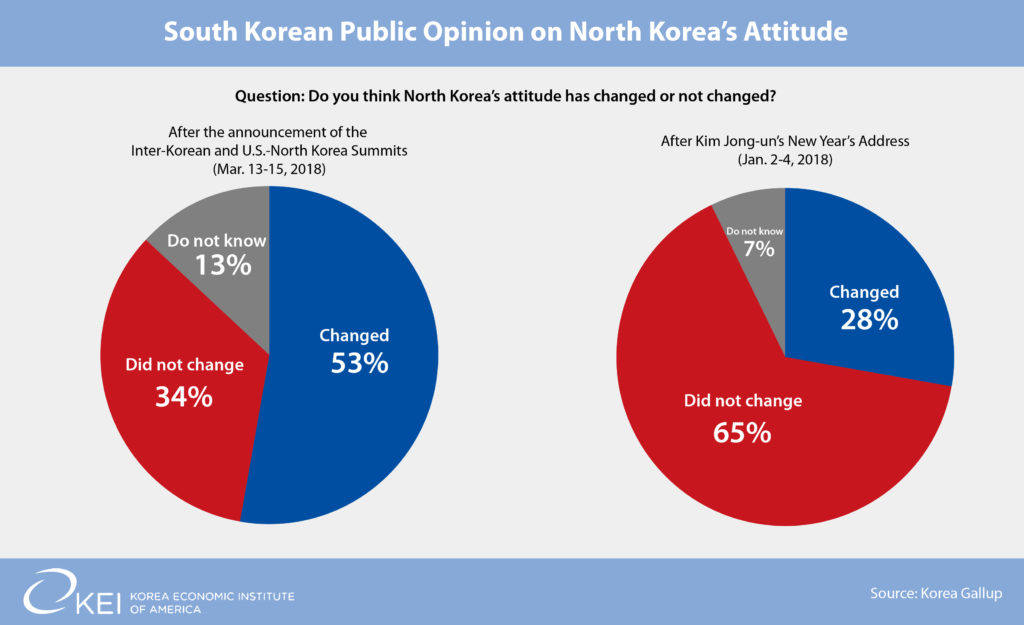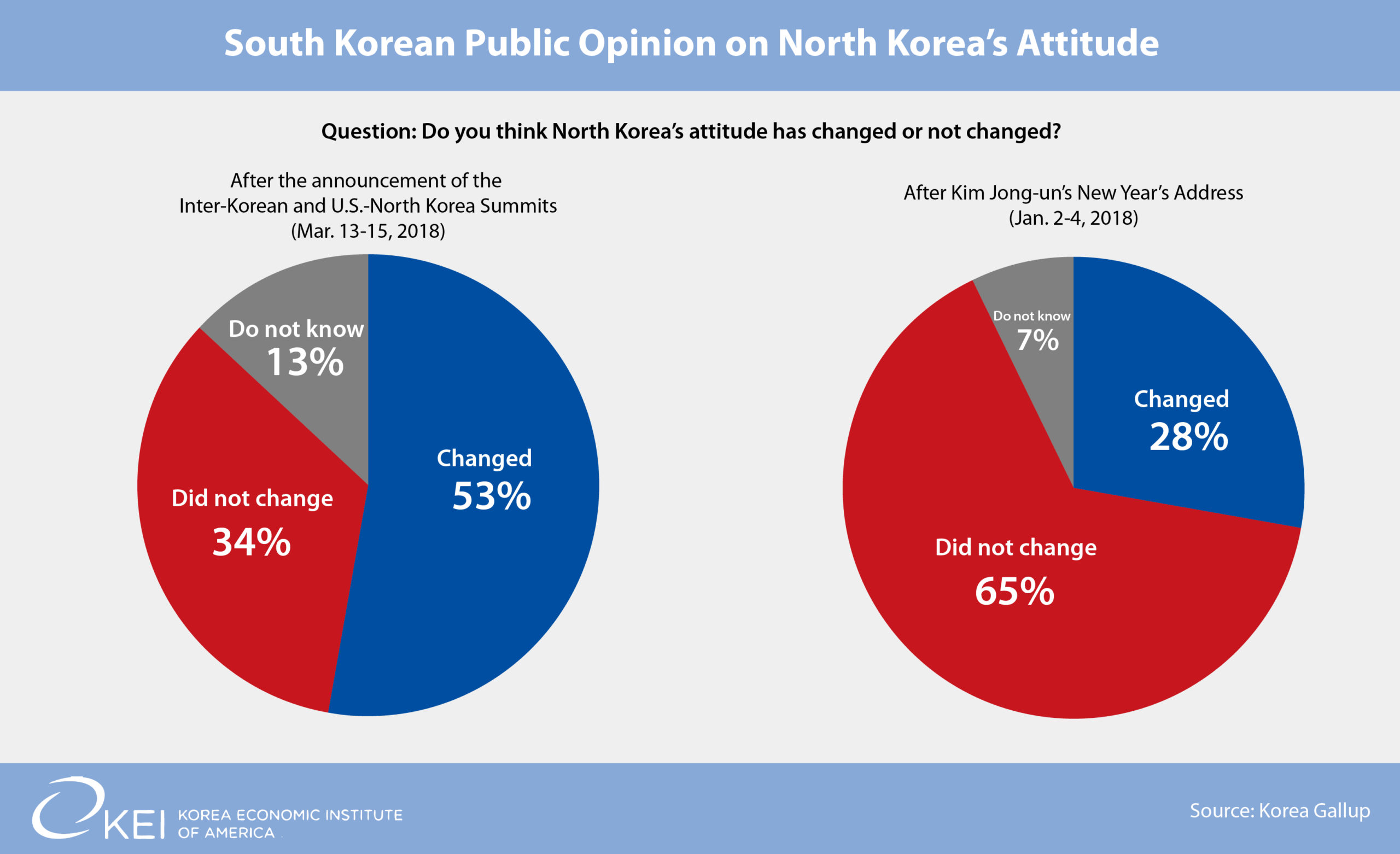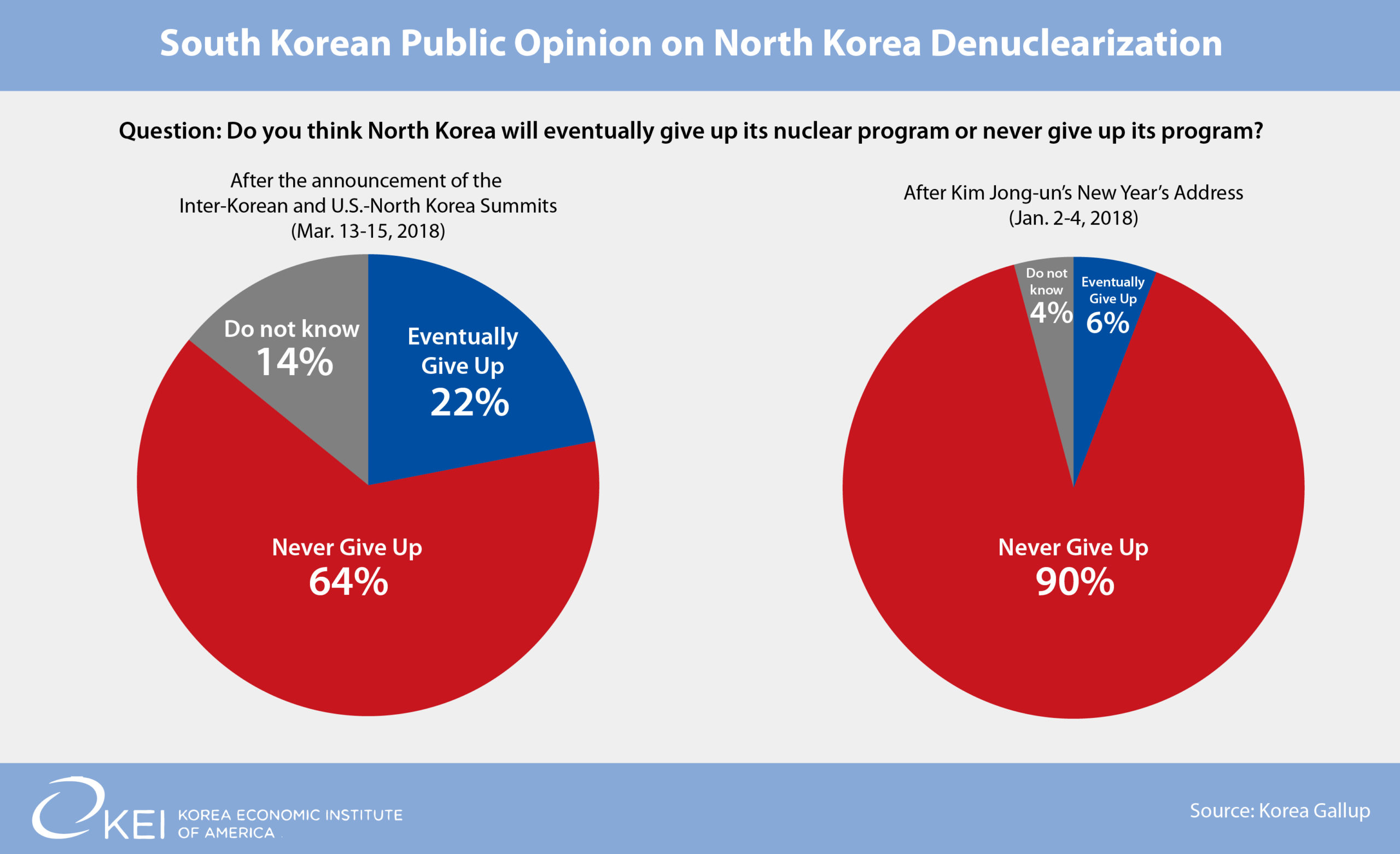The Peninsula
Summit Announcements Encourage Cautious Optimism Among South Koreans

By Juni Kim
On March 8th, a special delegation from South Korea announced on the White House lawn that U.S. President Donald Trump had accepted an invitation from North Korea’s leader Kim Jong-un to meet. The surprise announcement followed an earlier proposal for an inter-Korean summit with South Korean President Moon Jae-in. Both summit declarations cap a recent string of cooperative overtures made by the North Korean regime, starting from Kim Jong-un’s unusually conciliatory remarks in his New Year’s address.
While the talks have been met with varied reactions by Korea watchers, recent polls show that South Koreans have positively received the announcement of the proposed talks and are somewhat optimistic what it means for inter-Korean relations. According to a March 9th Realmeter poll, 73 percent of South Koreans welcomed the development, compared to 23 percent who did not welcome the change.
A majority of South Koreans (53 percent) also believed the proposed summit announcement marks a change in North Korea’s attitude. The numbers stand in stark contrast to Korea Gallup polling conducted shortly after Kim Jong-un’s New Year’s address this past January when the leader called for a peaceful resolution of tensions with South Korea. At that time, 65 percent of South Koreans responded that the speech did not reflect a change in North Korea’s attitude.

The substantial difference in reaction between the two different events underlies the significance of the summit announcements for the South Korean public. The last inter-Korean summit was more than ten years ago, with then-South Korean President Roh Moon-hyun and Kim Jong-un’s father Kim Jong-il. A sitting U.S. president has never met with a North Korean leader.
South Korean poll respondents also expressed more optimism about North Korea’s denuclearization compared to poll numbers in January, though a majority of South Koreans still believe that North Korea will never give up its nuclear program.

Although the poll numbers indicate increased optimism, South Koreans still remain deeply skeptical of their northern counterpart. According to Realmeter, 64 percent of polled South Koreans do not trust North Korea despite the talks offer, while 32 percent of South Koreans do trust North Korea. The numbers reflect South Korean awareness and familiarity with North Korean diplomatic tactics. Prior inter-Korean talks in the 2000s under the “Sunshine Policy” were later criticized for the substantial amounts of money South Korea provided to the North during that time, and the current lack of South Korean trust despite increased optimism reflects this recent history.
Having lived under the North Korean threat for decades, South Koreans are very familiar with the deadly provocations and broken promises of the past. The upcoming summits are undoubtedly meaningful, but like many throughout the global community, South Koreans are cautiously optimistic of what developments the talks will bring.
Juni Kim is the Program Manager and Executive Assistant at the Korea Economic Institute of America (KEI). The views expressed here are the author’s alone.
Photo from zuk0’s photostream on flickr Creative Commons.
